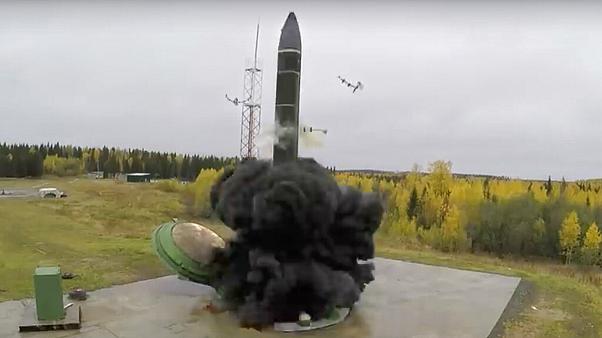In an interview with the website of the Strategic Council on Foreign Relations, Dr. Shoaib Bahman said the deployment of these missiles is important because it is the first time that Russia has taken a step beyond the United States in the field of missile weapons — a step which will take years for the Americans to produce a defense system against it.
He added: In the past, it was mostly the Americans who had superiority to the Russians in terms of technology; that is, they usually tested missiles or advanced weapons first, and then the Russians acquired similar weapons. But now the deployment of hypersonic missiles shows that Russia has achieved a state-of-the-art technology that the Americans do not have yet and it will take years to build a defense system and gain access to the complex Russian technology.
“This shows that the Russians have made a lot of progress in the field of weapons technology and have succeeded in overtaking the Americans,” he said.
“After the American pullout from the Intermediate Range Nuclear Force (INF) treaty we have virtually observed some kind of rivalry between the two countries,” he said adding that the Americans tried hard to test short range and intermediate range missiles, and the Russians, too, have said they will take action in a near future.
Noting that after the US withdrawal from the Intermediate Nuclear Non-Proliferation Treaty (INF), we have actually seen some kind of competition between the two countries, the Russian affairs analyst said the Americans have strived to test short and intermediate nuclear arms. In response, the Russians have announced that they would do so in the near future.
Russia’s Missile Actions A Response to US Provocations
“What is more important, however, is that the US withdrawal from the INF has virtually eliminated one of the most important treaties or agreements on non-proliferation and nuclear weapons ban treaty in the world,” he said. The elimination of this legal basis could increase competition in the future, not only between Russia and the United States, but also between other countries such as China and India. As a result, Russia’s actions in the field of missile technology appear to be largely in response to the movements the Americans have made over the past few years; but under the current situation, Russia’s access to this advanced technology will create new conditions in the arms race between Moscow and Washington.
Russians Will Not Enter into New Arms Race with US
Bahman, however, believes an arms race similar to what occurred at the end of the Soviet rule and was based on the Star Wars project raised by the Americans and the Reagan administration. He explained: “Having that historical experience in mind, the Russians would never fall into the US trap to forge a new arms race. Because the US military and defense budget is more than 10 times that of Russia; this indicator alone clearly shows that there is imbalance between the two countries economically and in the field of defense and military industries, and if Russia entered an arms race they would certain lag behind.
Investing in Areas Offering Significant Advantages over US
The Eurasian affairs analyst added: “But the Russians cannot remain silent against US development of weapons, especially as a significant part of the threats are against Russia. That is why the Russians, despite being extremely careful not to enter into a new arms race with the United States, are still investing in areas that could bring them significant advantages: Benefits that the Americans will not be able to achieve for years to come.”
Bahman emphasized that the Russians are investing in areas that have significant military superiority in the first place, and secondly, would cost the Americans a great deal to enter that competitive field.
Russians Strive to Challenge Americans Case by Case
“Russia has invested in missiles that the Americans will not only be unable to make in the current situation, but will need years to build a defense system,” he said. Russia’s acquisition of hypersonic missiles has led the Americans to move toward the creation of space military forces. In fact, one of the reasons for the creation of US military space forces was to counter these Russian hypersonic missiles.
He said that the creation of a space military force would cost the Americans huge money. “The Russians are trying to force their counterparts to spend more money by minimizing their own costs of modernizing their weapons,” he said. In doing so, they can offset that inequality in defense and military spending, while not engaging in a full-scale military and arms race but, on a case-by-case basis, challenging the Americans.
On the statement by Russian President Vladimir Putin that he was ready to incorporate military technology into the new START treaty, he said the Russians believe the Americans are no longer willing to form a new arms treaty because the Americans believe in addition to Russia there are others, including China, India, and even Iran, that have made missile advances over the years, so the Americans tend to be more inclusive if a new treaty is to be formed.
Russia’s Clever Suggestion on Inclusion of Hypersonic Missiles in New START
He noted: “At the same time, when the Russians make such a proposal and announce their readiness to incorporate their most advanced missiles into the treaty, it must be counter-productive; that is, the Americans must also bring missiles or weapons into this treaty that could compete with advanced Russian missiles and this is the point the Russians have cleverly put in place, because if this happens, the treaty could actually prevent a new arms race, and it would be in Russia’s interest for the US not to build more advanced weapons.”










0 Comments